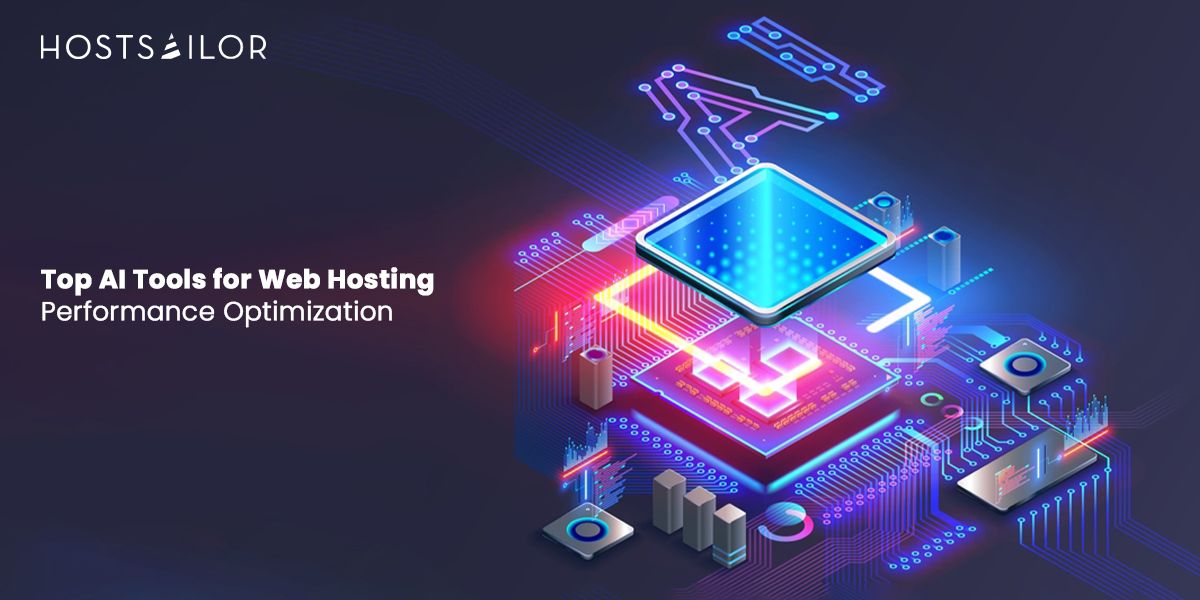

In this modern world of ours, there are tools for almost everything to make our lives easier, and AI has upped the game yet. There are modern AI tools for all kinds of things. Web hosting optimization is one of them. Our age is quite competitive, and businesses always strive to provide their users with a seamless experience. One way to do this is through their websites; they should load fast and remain secure.
This blog post explores different web hosting performance optimization tools that can work magic on your website’s speed and efficiency. Keep reading!
AI Tools for Web Hosting Wonders
Cloudflare Argo
- Cloudflare Argo is an AI-powered CDN tool that routes all traffic to a website via the fastest, most reliable path across the Cloudflare network.
- By applying machine learning algorithms to real-time data on millions of websites, it automatically constructs the best routes to avoid latency and even helps mitigate DDoS attacks, keeping your website safe from vulnerabilities.
- This tool also continuously learns and adapts to changing network conditions, providing ongoing performance improvements.
- The benefits of using this tool are fast loading, improved user experience, and higher search engine rankings.
New Relic
- New Relic is a strong AI-driven platform for monitoring and analytics. AI technology and a comprehensive set of APM tools will improve application performance, server health, and user experience.
- All these performance optimization tools will be of help to you in detecting and troubleshooting performance bottlenecks or problems and optimizing your code for the application.
- The platform allows visibility into the entire tech stack—from infrastructure to applications—all in one place, for very accurate performance optimization.
- New Relic AI lets you use historical data to predict performance issues that are yet to happen and correct them. This feature is particularly valuable for preventing downtime and ensuring that websites remain fast and responsive.
Dynatrace
- Another ultra-popular APM and AI-powered performance optimization tool is Dynatrace. It includes automatic and intelligent monitoring across applications, microservices, and cloud infrastructure.
- Using AI, it detects anomalies, identifies root causes, and optimizes your application’s architecture.
- This tool is capable of automatically resolving common issues, such as rebooting a server or reallocating resources—tasks that usually require human intervention.
Google Cloud AI
- Google Cloud AI offers a fully loaded set of AI and machine learning capabilities that can all be implemented in web hosting scenarios for maximum performance.
- Drawing from the great infrastructure and experience base in artificial intelligence that Google has built, these tools are designed to offer genuinely powerful optimization.
- With AutoML, Google Cloud allows the creation of custom machine learning models for optimization in your web hosting environment—from traffic management to resource allocation.
- Google AI-based load balancing ensures the appropriate distribution of traffic between servers to reduce the chances of overload and subsequent downtime.
- The tool performance optimization tool is provided with the capability to predict hardware failures or other issues and take measures before they even occur.
Sematext
- Sematext is an AI-powered log management and monitoring tool that supports web hosting providers in performance optimization through real-time monitoring of the performance of applications and servers.
- The tool provides a single, comprehensive platform for monitoring, logging, and tracking.
- The tool applies AI to log analysis and pattern identification, helping in finding the root causes of issues more effectively.
- Sematext provides actionable insights to improve performance by recommending server configuration or application tuning.
AppDynamics
- AppDynamics is an AI-powered APM solution that is part of Cisco, designed to help web host environments gain an end-to-end management view of applications.
- It applies machine learning to monitor, analyze, and optimize performance across the entire tech stack.
- AppDynamics follows the performance of individual business transactions and helps in specifying and optimizing the most important user journeys.
- This platform uses artificial intelligence to identify anomalies and present recommendations for correcting them to improve performance.
The Verdict: Are Web Hosting Performance Optimization Tools Important?
AI technology in web hosting is a refresher. We think you should use these kinds of tools for their numerous benefits, including:
- Faster loading times and lower latency for better user satisfaction and engagement.
- Search engines now give better rankings to performance-friendly websites, so the more work done on optimizing a website, the better it will appear in search results.
- These tools will allow you to optimize resource usage, bringing down your cost and improving efficiency.
- AI can help you identify and address performance issues before they impact your users.
As you can see, web hosting performance optimization tools that are driven by AI offer powerful capabilities for improving website speed, reliability, and user experience. This is not just a trend—it’s a necessity for staying competitive in today’s digital landscape.
If you’re looking for a trusted web hosting provider with comprehensive solutions, HostSailor is your go-to expert.
FAQs
1. How to use AI to optimize a website?
AI can optimize websites by:
- Automating content tasks
- Optimizing images and videos
- Improving design and layout
- Enhancing performance
- Boosting SEO
2. How can AI improve website speed?
AI web hosting performance optimization tools improve website speed by:
- Automating image optimization
- Using intelligent caching
- Recommending optimal CDN locations
- Analyzing and optimizing performance
- Implementing adaptive loading
3. How does AI improve SEO?
AI enhances SEO by:
Conducting keyword research and optimization
- Optimizing content for search engines
- Analyzing and improving backlink profiles
- Optimizing on-page elements
- Improving local SEO
- Conducting competitive analysis